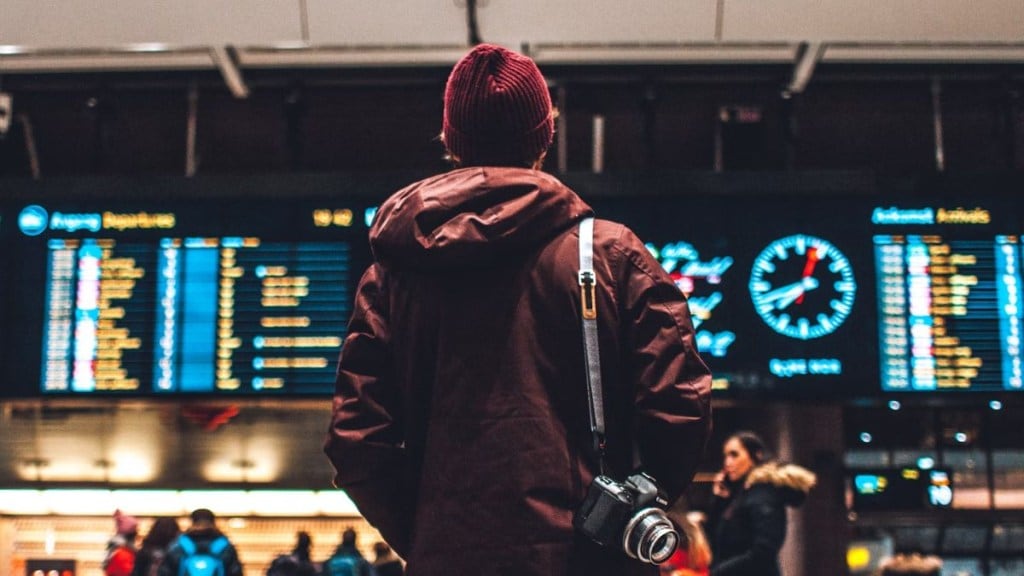“Traveling across Europe and the U.S. recently, I found it convenient to seek help from AI, not just for basic tasks like translating signs or finding restaurants, but for deeper travel planning and cultural immersion. It’s like having a hyper-local, always-awake travel companion who learns what I need on the go. The hours of research has now condensed into a detailed work in a tap,” said Debaditya Chaudhury, MD, Chowman, on his recent travels.
Once upon a time, planning a vacation meant juggling tabs of flight aggregators, hotel booking sites, weather forecasts, and travel blogs, all while trying to align your calendar, your budget, and your mood. But with AI, travel planning today feels a little…smarter. A little more tailored. And increasingly, it’s not a human behind the itinerary, it’s artificial intelligence.
AI is quietly transforming the travel industry, not by replacing the joy of discovery, but by enhancing it. Whether it’s helping you choose the perfect city to visit based on your personality or fine-tuning your itinerary based on real-time weather, AI is working behind the scenes to make travel more intuitive, efficient, and—most importantly—personal. We are not saying this, experts are.
Rajeev Kale, President & Country Head – Holidays, MICE, Visa, Thomas Cook (India) Limited agrees. “AI is transforming the travel landscape by making travel planning more personalised, intuitive, and efficient,” he said.
So how is Thomas Cook incorporating AI into your travels? “At Thomas Cook India, digital transformation is at the core of our strategy and we’ve built an intelligent AI ecosystem that touches every phase of the travel journey. Our AI-powered travel platform is transforming the way the world travels—delivering hyper-personalized, real-time itineraries with instant access to flights, hotels, transfers and activities,” Kale said.
“‘TACY’, our Generative AI Chatbot, is designed to transform how businesses engage with customers by providing intelligent, human-like conversations in real time. Harnessing the power of advanced natural language processing and generative AI models, the chatbot goes beyond scripted responses to deliver personalized, context-aware, and dynamic interactions,” he added.
SOTC Travel, one of the leading travel platforms in the world follows suit. “Our Gen-AI travel assistant – EZY, manages bookings, payments and document delivery in real-time, while also enabling customers to schedule video consultations with holiday experts for personalised support,” said SD Nandakumar, President & Country Head – Holidays & Corporate Tours, SOTC Travel.
What this approach does is it “combines the human touch, personalised service and expert advice offered by physical retail outlets with the speed, efficiency and convenience of digital platforms.”
But SOTC Travel went a step further. “Further strengthening our regional connect, we have introduced our website in five Indian languages—Hindi, Gujarati, Marathi, Tamil, and Bengali—enhancing accessibility and engagement across India’s diverse customer base,” added SD Nandakumar.
AI gives you a new kind of travel companion
Imagine this – You want to take a week-long vacation in July. You love art, avoid humid climates, prefer boutique hotels over large chains, and want to try the best croissants outside of Paris. In the past, this would’ve meant hours (or days) of research. Today, platforms powered by AI can do it in minutes.
Mr. Sanjith Mukund, Founder of JrnyOn, a UK-based online travel marketplace, explains this better. “One of the most complex and least digitised areas in travel has been the curation of multi-day itineraries. Unlike booking a flight or a hotel, these journeys require careful design and personalisation. Every traveller has different expectations. Some travel for food, others for adventure; preferences vary widely by age, activity level, dietary needs, or pace of travel,” he explained.
“This complexity has kept much of the multi-day experience market offline for years. But with AI, we’re now able to bring intelligence into the planning process, curating and customising itineraries based on a traveller’s preferences, and doing it at scale. AI is not just matching people to destinations; it’s helping build the journey around the individual. It’s a shift from static packages to deeply personalised travel design,” he added.
Rajesh Chopra, Senior Vice President and Head, Advisors, South Asia at Mastercard too weighed in on the topic. “The toughest part of travel comes long before the holiday itself — the planning. With multiple recommendations and endless options, creating the perfect itinerary can be a challenge. This is where AI comes to the rescue. As generative AI tools advance, people are increasingly turning to AI tools and chatbots to research and organize memorable experiences—from the best pizza in Rome to the clearest waters in Alimatha,” he said.
It’s not just about convenience. It’s about relevance. AI can remember your previous trips, learn from your choices, and even adjust future suggestions accordingly. For instance, if you consistently rate spa resorts higher than city hotels, your future options will reflect that preference. AI also remembers if you had expressed any previous interest in a destination online.
Dikshant Dave of Zigment AI breaks it down further. “Imagine commenting on an Instagram post about a destination, and instantly receiving a WhatsApp message that asks about your preferred locations, budget, or travel dates. That’s agentic AI in action, engaging users in natural, meaningful conversations, capturing intent, and guiding them smoothly from curiosity to confirmed bookings, all in real-time.”
AI leads to smarter booking, better time-management
One of the most frustrating parts of travel planning? Watching flight prices rise just when you were about to book. AI is changing that, too.
Tools like Hopper and Skyscanner now use machine learning to predict flight and hotel price trends with remarkable accuracy. These platforms can advise whether you should book now or wait, sometimes saving travellers hundreds of dollars.
Meanwhile, AI chatbots on platforms like Booking.com or Expedia offer real-time customer support, helping you rebook flights, upgrade rooms, or request special amenities—without waiting on hold for an hour.
“AI removes the friction of traditional booking systems and meets travelers where they already are, on familiar platforms like WhatsApp. From checking hotel amenities to customizing packages and making secure payments, everything happens within a single, intuitive thread,” Dikshant Dave remarked.
Is AI replacing human travel agents?
What AI offers is scale and speed. What humans still bring is intuition, creativity, and personal touches you simply can’t replicate with an algorithm. The future of travel might just be the best of both worlds.
Mr. K. Syama Raju, President of FHRAI (The Federation of Hotel & Restaurant Associations of India) describes, “AI, in simple terms, acts like a smart assistant that processes large amounts of data to understand and anticipate guest needs. In the hotel sector, this translates to timely booking suggestions, curated packages, faster check-ins, and personalised recommendations. At FHRAI, we believe AI is not replacing human hospitality; it is complementing it. By handling repetitive tasks, AI frees up hotel staff to focus on what matters most delivering warm, attentive, and memorable guest experiences. As the hospitality landscape evolves, adopting AI is no longer optional. It is vital to meet the expectations of today’s tech-savvy travelers.”
Mukul Sharma, Co-founder & Chief Technology Officer at OftenImportantly chimed in, voicing the same sentiment. “AI must be integrated seamlessly with existing systems and infrastructure, since many of those legacy processes are not getting changed in the near term. Importantly, AI must also integrate seamlessly with existing systems and infrastructure, since many of those legacy processes are not being replaced in the near term. The outcome is a more personalised, responsive travel experience at 20-30% of the traditional cost,” he concluded.








